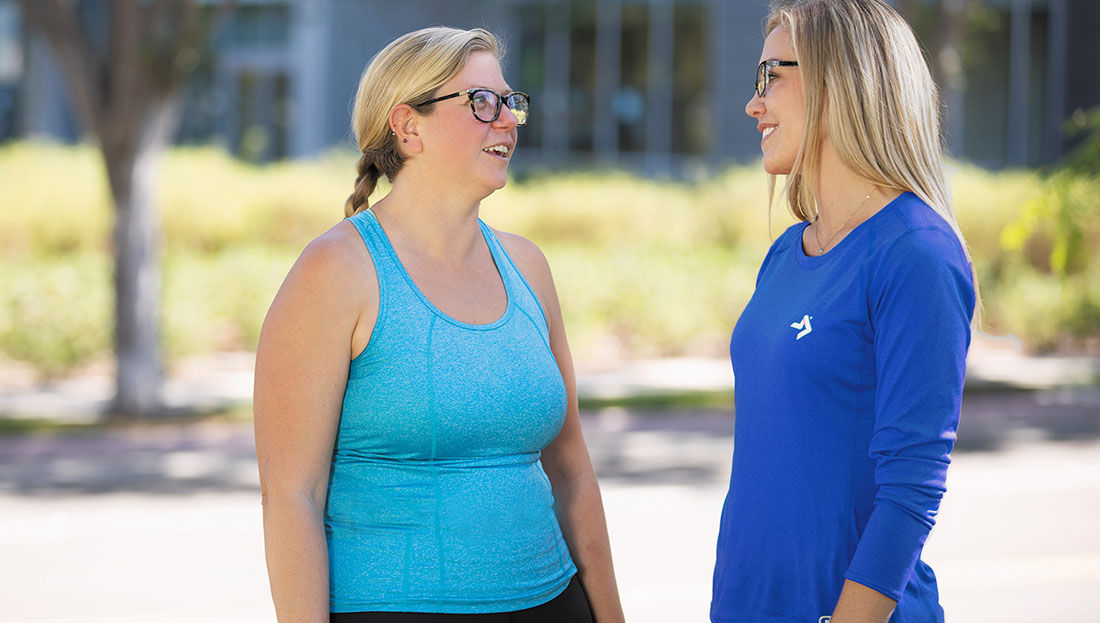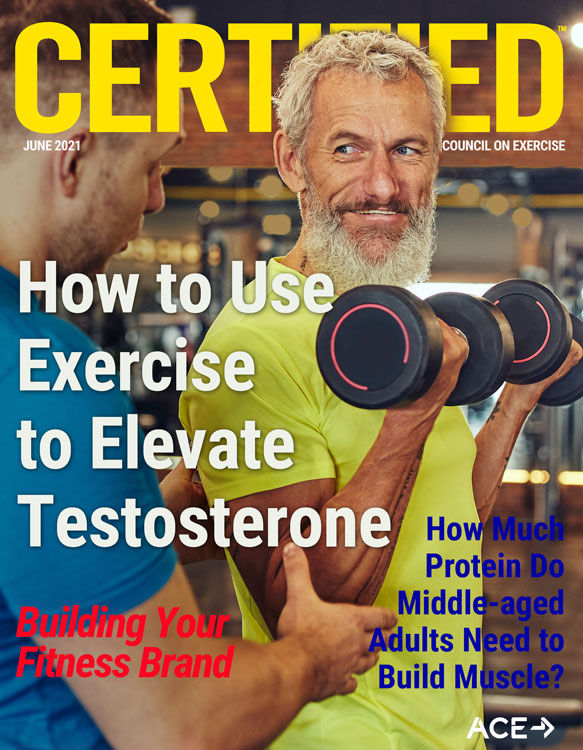
Mentoring and being mentored in any profession includes objectives, a planned approach and specific reflective practices and opportunities for growth for both the mentor and mentee. However, it is an experience that is only as successful as the relationship between the two professionals. Mentoring, much like the relationships we develop and nurture with our clients, is a professional connection rooted in a foundation of rapport and reciprocity.
This article examines the characteristics of a successful mentor−mentee relationship and why a professional connection rooted in a foundation of rapport and reciprocity is essential.
What is Mentoring?
It is important to understand that mentoring is not the same thing as leading or leadership, although it is often regarded as such. Mentoring is not about leading, it’s about learning—on both sides. Both the mentor and mentee stand to gain valuable lessons and insight by participating in the experience. In short, the benefits of mentoring and the benefits of being mentored, though different, are of equivalent value.
Likewise, it is important to understand that being a successful mentor does not require being in a leadership role or having a distinguished leadership position or specific scope of authority. A mentor is typically a more experienced professional who is interested in helping to shape the future of the professional field and assist new professionals in carving their individual and unique paths in the industry.
Mentoring is also not the simple act of giving advice. Mentoring is an artful practice aimed at facilitating and experiencing personal and professional growth. This involves a unique process in which both the mentor and mentee engage equally, authentically and unselfishly. A mentor is someone who is committed to helping the mentee become a confident and capable traveler along their professional journey.
Finally, mentoring or serving in a mentorship role is not the same as, or related to, being a manager or supervisor. A successful and sustainable mentoring relationship in no way requires that the more experienced professional be the mentee’s supervisor. In fact, the mentor may not work in the same studio, club, clinic or facility as the individual seeking mentorship and guidance.
At its most basic level, mentoring is a learning process designed to help all involved grow in ways in which they are not capable of in isolation. Mentoring, when done well, offers encouragement, a safe place to make mistakes and take chances, tools to soften our professional edges and refine/expand a skillset, and opportunities to develop new perspectives and approaches in our professional practice. Mentoring and being mentored are gifts.
Qualities of Effective Mentors
Not all experienced professionals have the skills or desire to serve as a mentor to newer professionals and that’s O.K. Every professional has their role in the field and in the industry and not everyone needs to become a mentor—especially if it isn’t a role that resonates with you. Serving as a mentor requires specific characteristics and a consistent and enthusiastic commitment to teaching. Mentoring also commands a deep respect for the learning process.
When noting qualities effective mentors possess, Chris Gagliardi, ACE Scientific Education Content Manager, emphasizes the value of a “growth mindset or willingness to learn.” Additionally, there are unique opportunities for the student to become the teacher. For example, explains Gagliardi, “perhaps the mentor has used the same exercise with clients for the past 10 years. While it is a great exercise, perhaps the mentee will share a new option with the mentor that may be more efficient and appropriate for more clients.” Mentors should have an open mind and be willing to listen and receive suggestions from the mentee.
Life learning is far more difficult than memorizing principles, concepts and theories from a manual or textbook. As such, lessons gained through a mentorship experience likely require more concentrated time, intentional reflection and a willingness to try again.
Effective mentors often have an unshakeable passion for their craft and the field in which they work. Beyond the basic necessity of passion, however, individuals who are successful in their mentorship efforts are patient, creative and possess an affinity for teaching others. Other qualities that are priorities for mentors include:
- An unselfish nature and the ability to share their experience intentionally and in a way that guides the mentee
- The ability to provide fair, balanced and structured feedback to mentees
- The ability to listen actively and nurture critical thinking
- The value and commitment to industry-related continuing education and professional growth
- Enthusiasm, awareness and excitement
- A commitment to networking and learning from other professionals
- A respect for different viewpoints and philosophies, even if those ideals are in contrast to the mentor’s own perspective or approach
- Honesty and integrity
- A proven track record of success in their professional endeavors
Perhaps one of the most powerful attributes is authenticity. “If you are not truly expressing your authentic self as a mentor,” says Gagliardi, “it will eventually come to light during the mentoring relationship. Be true to yourself and what you stand for from the beginning. It is tempting to tell people what you think they want to hear but it is important for a mentee to see the whole truth and nothing but the truth. This sets the mentee up for success by seeing what real life has to offer.”
Sharpening Your Mentoring Skills
The process of mentoring, like health coaching and personal training, takes time to sharpen and refine. It evolves over time and requires consistent practice. Though you might not be serving in a formal mentorship role, you might be interested in expanding your services to include guiding new professionals. If that is the case, I encourage you to use a SWOT (strengths, weaknesses, opportunities and threats) analysis focusing on your existing mentorship skills and areas for growth.
To illustrate this, use what I refer to as the three-funnel approach. Funnel one represents your strengths and natural qualities. Funnel two represents your challenges and/or areas you perceive to be weaknesses. The third funnel is for brainstorming ideas of how you can grow and refine your mentoring skills. All three funnels, like tributaries, lead to the larger body of water, which is your action plan. Below are questions you can use to reflect upon for each of the three funnels.
Funnel One – Strengths
- What are my strengths?
- What strengths do others perceive I possess?
- What strengths apply to serving in a mentorship role?
Funnel Two – Challenges
- What challenges me?
- How do these challenges relate to the role of a mentor?
- What scares me about mentoring?
Funnel Three – Bridging the Gap
- How can I bridge the gap between my strengths and challenges?
- What actions can I take?
- Who can I connect with? Is my professional network robust?
After you fill each funnel, sketch out an action plan that you can implement over a predetermined period of time.
Qualities of Successful Mentees
The effectiveness of a mentor is only one variable in the equation. The other variable includes qualities of successful mentees. Many qualities of mentors and mentees overlap; they aren’t mutually exclusive. But there are certain characteristics mentees must prioritize and cultivate to have a successful experience. Mentees should:
- Remain open-minded and value a growth mindset
- Be willing to receive and implement feedback
- Engage in and embrace the learning process
- Be motivated to succeed and apply lessons learned
- Be proactive and solution oriented
- Employ time-management skills to facilitate the achievement of goals and progress
- Be professional, dependable and respectful
- Be willing to take the initiative on projects and tasks
- Have clearly defined goals and a vision for what is to be accomplished during the mentorship experience
- Ask relevant and specific questions
When looking to engage in mentorship opportunities, the mentee should be clear on their expectations and specifically identify what they hope to gain from the experience. For example, if a mentee is seeking guidance for developing and launching a private business, the goals and objectives outlined should directly relate to that intention. Being clear and focused also helps a mentee be appropriately matched with a mentor who possesses that particular body of knowledge and experience.
Identifying a Mentor
An effective mentor and a successful mentor−mentee relationship and experience depend upon the chemistry between the two individuals. As a new professional seeking a mentor, it’s possible to find a professional who offers mentoring, but the two individuals may not mesh well together. That’s O.K. We observe a similar phenomenon when meeting potential clients—their energy may not match our own. A mismatched or conflicting chemistry between individuals is important to identify up front so that neither professional invests energy or time unnecessarily.
When it comes to seeking out another more experienced professional to serve as a mentor, there’s no clearly defined process or set of rules to follow. Fortunately, the advent of social media makes it easier to connect with others in our field and passively learn from the work others do. This is an informal type of mentorship. Though there’s no procedure manual for identifying mentors who can support your professional journey, there are some considerations and practices you can employ to get the most out of your efforts.
One option is to examine who is in your immediate network. Assess their values and philosophy and question how their perspective mirrors or aligns with your own. Does the work they do resonate with you? Do they offer insight you are curious to know more about?
“Looking for someone with similar values to your own can add to the mentee experience,” notes Gagliardi. Mentoring can and does happen peer-to-peer. For example, there may be someone in your network who is well versed in online health coaching and that is an area you wish to explore. Consider contacting that professional and sharing a little about your work and what you hope to achieve as part of your career endeavors. Be sure to mention their work and how you feel it connects with your focus and larger goals. A mentoring relationship may happen as easily and as organically as that.
Second, who are the established professionals in your field? Is there a name in the industry you follow who inspires you and motivates you? Try to connect with them and engage with their work on a more consistent and formal level. Mentorship opportunities can arise this way naturally. If there’s someone you do reach out to and you don’t get a reply, move forward and reach out to another inspirational professional.
Another option is to attend conferences and workshops either in person or virtually. There are amazing networking opportunities in both formats.
Are you a member of any online support groups? If not, you might consider joining one or more to expand your network and engage with others. For example, the ACE Health Coach Network on Facebook is a place where individuals often discuss mentorship and opportunities to grow.
Finally, make it known that you are seeking a professional to mentor you. What you seek is often seeking you and making your intentions public increases the likelihood that you will make more than one meaningful connection.
How Health and Exercise Professionals can Start Mentoring Others
As I identified in a previous article, Why the Fitness Industry Needs a Mentorship Program, there is an enormous gap that is begging to be addressed. Currently, our industry lacks a mentorship program that effectively matches new professionals with more experienced health and fitness industry experts to engage in a formalized mentor−mentee experience. This is an area of the industry that will take time to nurture and establish. In the meantime, there are active and intentional steps established professionals like you can take to begin meeting this need. The following is not meant to be an exhaustive list of possibilities or actions; rather, it is a place to begin and grow.
- Internships. If you are positioned to do so in a club, studio or other business setting, consider offering formal internship opportunities to current students or newly certified professionals. Contact your certifying agency to inquire about promoting those opportunities.
- Shadowing opportunities. When you work with clients, are you able to offer an opportunity for new professionals to observe the session and your overall style? How can you create more of these experiences? Keep in mind that if you offer shadowing opportunities, you must obtain your clients’ permissions well in advance.
- Review workout programs. An enormous challenge for many new professionals is moving from theory to practice. One of the tasks that seems to create anxiety is the creation of a workout program. As a seasoned professional, you can offer great insight into the overall structure and format of a workout design. Be willing to offer suggestions and resources to help your mentee build a better workout.
- Facilitate connections. If you are a veteran professional, you have an established network. Offer to introduce mentees to others in your network and help them build rapport with other established health and exercise professionals.
- Tell stories and share your experience. Humans are natural storytellers. We like to share what we’ve seen and where we’ve been. Leverage this and share your unique story, mistakes, oversights and successes within your career.
- Share processes and approaches. Every health and exercise professional has their own process, and no two professionals take the exact same steps or formulate their thoughts the same way. Share how you work, what your process is for a new client intake, how you program, how you assess, how you keep your client records, etc. This is not to eclipse the mentee’s own approach, but rather to offer a different point of view.
Neither mentoring nor being mentored is a simple or quick fix. Both are about learning, which like behavior change, takes a strong commitment and time. Whether you are a veteran professional or newly certified, the benefits of mentorship are substantial and will ultimately serve to enhance our industry, both today and well into the future.





 by
by 


